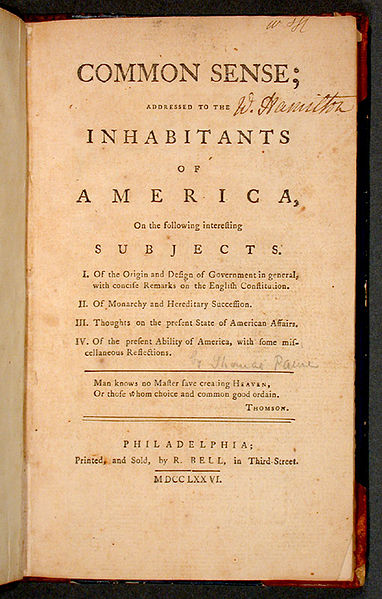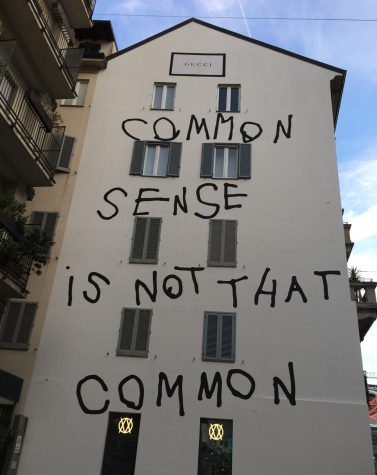The Reality Behind Common Sense
Common sense is something that’s been around for several years, but is it actually common, or a sense?

Scanned by uploader, originally by Thomas Paine., Public domain, via Wikimedia Commons
Look both ways before crossing the street, don’t enter an elevator before everyone exited, dressing up for a job interview, using oven mitts when picking up something hot, and not congregating over a doorway. What do all of these situations have in common? They’re considered examples of common sense.
Common sense is defined as having sound judgement in practical matters derived from experience, rather than study. It’s been considered to be one of the most revered qualities to Americans, evoking images of earlier and simpler times of industrious men and women building our country into what it is today. Individuals that are shown to have common sense are viewed as down to earth, reasonable, reliable, and practical.

But there’s a catch to all this: common sense is neither common nor sense.
There isn’t a just amount of sound judgement going on nowadays; if there were, people wouldn’t be making the decisions that they do. People wouldn’t smoke or drink and drive, despite know it’s bad for them. People wouldn’t gamble with money they don’t have. And, in more recent events, politicians and celebrities wouldn’t make controversial comments that could ruin their career.
Common sense isn’t actually a sense because it doesn’t derive from reasoning, logic, or intuition, nor is it innate. Making decisions based on experience alone isn’t reliable because everyone has different experiences and mindsets. Furthermore, the world around us isalways changing. The experiences and lessons taught to the upper-class is different from how a lower-class citizen experiences life. Thinking on a national level, people in a developed country like the US or the UK have different day to day experiences than developing countries like India, China, or Brazil.

The word “common”, by definition, suggests that a large number of people see the same thing as being common sense. However, if a group of people collectively agree that something makes sense, they’re no longer behaving according to the sound judgment that common sense is defined as. Furthermore, people who are accused of not having common sense prove that common sense isn’t a sense as all, but that it’s also completely wrong. Not to mention, common sense is often used by the people who lack the knowledge, expertise, and direct experience require to actually make a sound decision.
The biggest problem with common sense is that it challenges the limits of personal experience. If a person doesn’t have experience in a matter, they simply rely on what they believe to be true or have been told is true. This is what some label as a “faith-based sense.”
A common example of this is when you’re having a discussion on any subject that requires you to take a stand (weather, sports, politics, etc.). How often do you hear someone say, “In my experience…” and the person draws a conclusion based on said past experience? On most occasions, the person makes a conclusion about something that can be disproven with verifiable facts.
People have viewed common sense as being wise and reliable, but it’s clear to see that common sense is nothing more than a person who’s lacking the experience to make a reasonable decision. Someone who makes decisions based on factual information they know will have a higher chance obtaining the results they wanted and make safer and wiser decisions.
Websites used: Common Sense Is Neither Common nor Sense | Psychology Today, Why “Common Sense” Is Not So Common | Psychology Today




